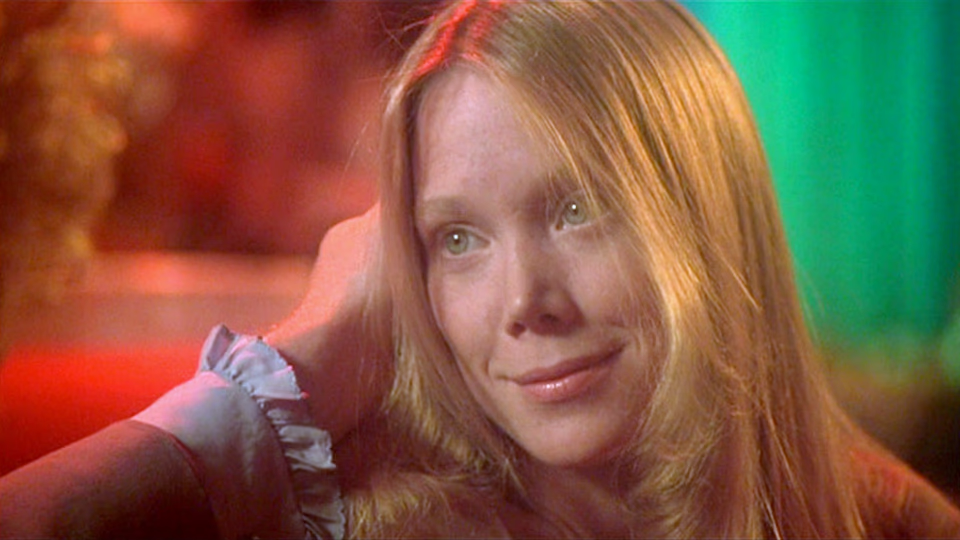Carrie

I’d seen Carrie at least twice prior. I remembered it as a competent, albeit unremarkable Stephen King adaptation. Having now seen director Brian De Palma’s prior films, I came away from this viewing with a renewed appreciation. This is De Palma’s baby, for better and worse.
From the opening crane shot depicting a girl’s volleyball gym class match, De Palma’s inventive camera work shines. We meet Carrie White, played by Sissy Spacek. A near-silent sequence tells us all we need to know about her alienated status.
Spacek shines in the part, convincing as both a burgeoning woman and frightened child.
We soon learn Carrie is telekinetic. An awkward scene with Carrie verbalizing a library book definition of telekinesis hammers this point home.
These elements collide when a popular girl named Chris springs a disgusting trick on Carrie at the prom. Carrie snaps and lashes out with supernatural fury. A sequence De Palma plays out in his now-signature split-screen technique to great effect.
I came in familiar with King’s novel and the changes De Palma makes speak to the film’s biggest shortcoming. Piper Laurie plays Carrie’s overbearing zealot mother, Margaret. I liked Laurie in the role, but the character proves less physically imposing than King’s vision. Chris’s boyfriend Billy, played by John Travolta, deviates from the source too. He’s a bit more charming and goofy than the sociopathic goon in King’s novel. The best way I can articulate these changes and the missing elements in the film itself is that it feels more urban. De Palma doesn’t capture the isolated small-town feel. A place where monsters like Billy and Margaret can grow unchecked because small towns don’t have monsters. Compare Travolta’s character here to Kiefer Sutherland’s Ace Merrill in the later King adaptation, Stand by Me. Or Laurie’s character to Kathy Bates’s Annie Wilkes in Misery. Carrie is a good movie and a decent King adaptation, but De Palma may have been better served adapting more urban material.